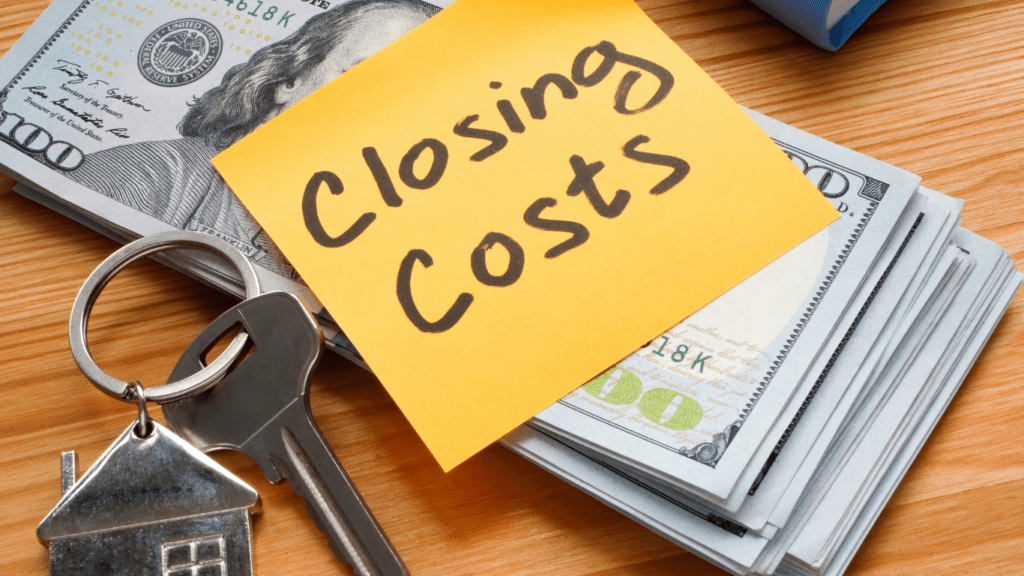Understanding Closing Costs
Closing costs represent the final hurdle before a home purchase becomes official. These expenses include various fees required to complete the transaction.
What Are Closing Costs?
Closing costs are fees paid at the end of a real estate transaction to finalize the purchase. Common charges include:
- loan origination fees
- appraisal fees
- escrow fees
- title insurance
- property taxes
For example, lender fees cover administrative work, while title insurance protects against ownership disputes. Typically, these costs range from 2% to 5% of the home’s purchase price, depending on factors like location and loan type.
Why Are They Important for First-Time Buyers?
Accounting for closing costs prevents surprises during the homebuying process. First-time buyers may underestimate these expenses, risking financial strain during closing. Understanding these costs helps plan a realistic budget, ensuring smoother negotiations and better decisions. For instance, knowing about prepaid items like homeowners insurance and property taxes aids in preparing for future ownership responsibilities.
Types of Closing Costs and Fees

Closing costs and fees cover a broad range of expenses related to finalizing a home purchase. For first-time buyers, understanding these costs is crucial to budget effectively and avoid financial surprises.
Lender Fees
Lender fees make up a significant part of closing costs and cover services provided by the mortgage lender. These include loan origination fees, which typically range from 0.5% to 1% of the loan amount, and underwriting fees for evaluating the borrower’s creditworthiness. Other lender fees may include rate lock fees and discount points, optional costs paid upfront to lower the loan’s interest rate.
Title and Escrow Costs
Title and escrow costs ensure the property ownership transfer is secure and funds are handled correctly. Title insurance protects the buyer and lender against potential ownership disputes, with policies often costing $500 to $1,000 depending on the home’s value. Escrow fees, charged by the company managing the transaction, average between $500 and $2,000 and cover administrative tasks like document preparation and fund disbursement.
Prepaid Expenses
Prepaid expenses are upfront payments for property-related costs that go into an escrow account. These include property taxes, typically covering the first six months, and homeowners insurance premiums, which may require one year of coverage to be pre-funded. Buyers might also encounter prepaid interest charges, calculated based on the loan’s closing date.
Other Miscellaneous Fees
Miscellaneous fees account for smaller, transaction-specific costs. Examples include home inspection fees, usually between $300 and $500, and appraisal fees, often costing $300 to $700. Recording fees, charged by local governments to document the transaction, range from $20 to $250. Survey fees, if required, can add another $350 to $500.
How to Estimate Your Closing Costs
Estimating closing costs can help avoid unexpected financial surprises when finalizing a home purchase. Having a clear understanding of potential expenses simplifies budgeting and strengthens financial readiness.
Using Online Calculators
I recommend starting with online closing cost calculators to get a general estimate. These tools use property value, loan amount, and location to calculate approximate costs. For example, many calculators factor in local taxes, title fees, and lender charges. While not precise, these estimates provide a useful starting point for gauging total costs. Accuracy improves if you input specific details about your loan or property.
Consulting with Your Lender or Realtor
- Contacting your lender or realtor offers tailored insights into expected costs.
- Lenders provide Loan Estimates, typically within three business days of a loan application, detailing fees like origination charges, appraisal costs, and prepaid items.
- Realtors, with their market expertise, can outline region-specific expenses such as transfer taxes or HOA initiation fees.
- Combining lender data with realtor advice ensures a more accurate and comprehensive estimate of closing costs.
Strategies to Reduce Closing Costs
Reducing closing costs can help ease the financial burden of buying a home. By using effective strategies, first-time buyers can lower their overall expenses and maintain better control over their budget.
Negotiating with Your Lender
Lenders often include various fees in loan estimates, many of which are negotiable. I ask my lender about waiving or reducing costs like loan origination, application, or underwriting fees. Comparing loan offers from multiple lenders also highlights where savings are possible. Some lenders even offer credits toward specific fees in exchange for slightly higher interest rates, depending on the loan terms.
Exploring Closing Cost Assistance Programs
Many local and federal programs offer financial assistance for closing costs. I research state-sponsored housing agencies and nonprofit organizations that provide grants or low-interest loans to first-time homebuyers. For example, FHA loan programs or HomeReady by Fannie Mae might offer reduced fees or coverage for specific expenses. Eligibility typically depends on income level, location, and credit history.
Timing Your Purchase Strategically
Certain expenses vary by closing date, so timing matters. I schedule my closing at the end of the month to minimize prepaid interest, which accrues daily from the loan disbursement date to the end of the month. Avoiding peak buying seasons can also reduce demand-driven costs like appraisal and inspection fees. Flexible scheduling ultimately helps reduce expenses tied to the transaction.







































































































































































































































































































































































































































































































































































































































































































































































































































































































































































































































































































